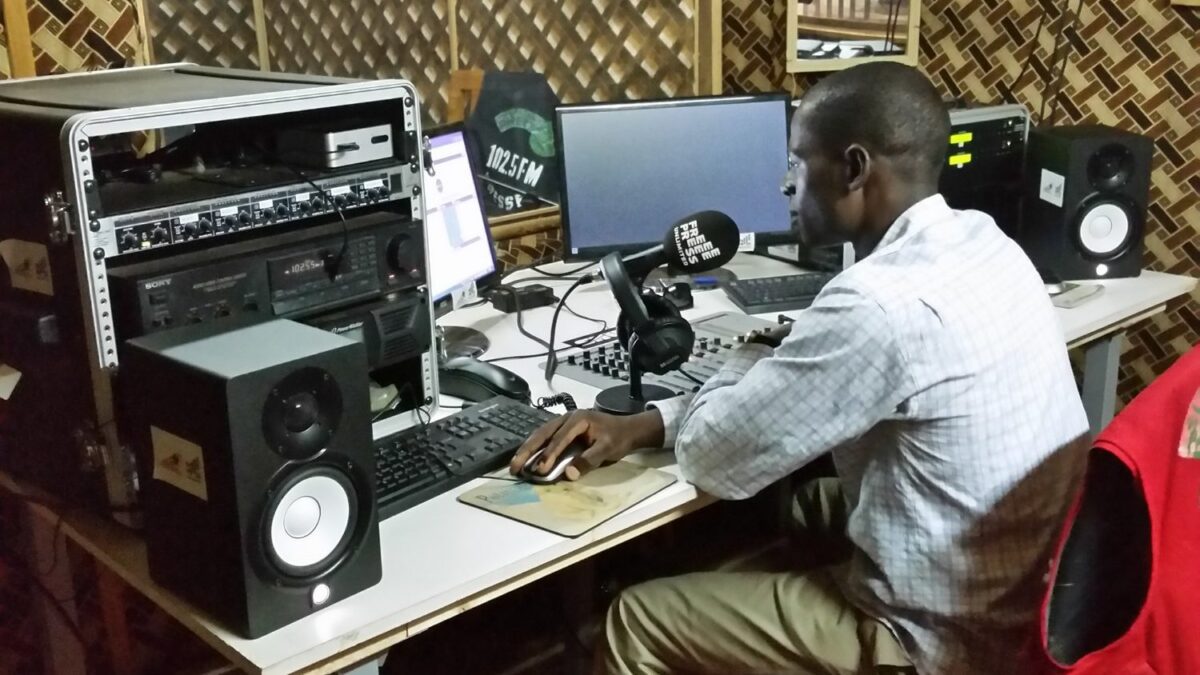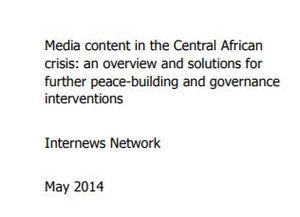
This program was implemented in January 2014 with the purpose of easing the humanitarian situation in Central African Republic (CAR) that followed the military overthrow of President Bozizé by the rebel Seleka coalition in March 2013. According to the United Nations, as a result of the crisis, in late November 2014, 430,000 Central Africans were internally displaced and 423,800 others sought refuge in neighboring countries; 1.7 million lived in a situation of constant food insecurity and 2.5 million required immediate humanitarian assistance. Humanitarian access, security, and protection of civilians remained difficult challenges for humanitarian agencies in CAR trying to provide basic services and humanitarian assistance to people in need in the years to come.
Internews helped improve access to information for all stakeholders in CAR, working with The Association of Journalists for Human Rights (RJDH, by its French acronym) and the Community Radio Correspondents Network (CRCN). Through a number of initiatives and partnerships, the project provided populations affected by the civil unrest with information that could protected their lives and livelihoods, and information and civic education to prepare for a return to constitutional order, effective government and civil peace.
IMPACT REPORT

This report presents the results of the monitoring and analysis of six radio stations located in Bangui, six daily newspapers and four websites, which resulted in 248 hours of news and information radio programs and 448 articles.
- Reaching communities where they are – Internews network of partner is now at more than 20 radio stations and media outlets in the country, giving Internews and its local partner RJDH an unprecedented access to vulnerable communities across the country.
- News You Can Use – Internews main partners in CAR, The Association of Journalists for Human Rights (RJDH) and the Community Radio Correspondents Network (CRCN), produced and published 5,328 news stories on a number of topics to help inform citizens, refugees and Internally Displaced Persons (IDPs), the Government, the humanitarian community and other stakeholders on important, accurate and real-time information.
- Reach – Over the course of the project, the average number of unique daily visitors to the RJDH website reached 2,500, while the number of e-newsletter subscribers was 1,431 at project closeout.
- Access to information for the most vulnerable – RJDH was for a long time the only media with the presence of a Muslim journalist on staff. This allowed RJDH to have access to report on the situation in PK5, the main Muslim neighborhood in Bangui, where many non-Muslims are unable to travel. This also helped improve balance in the content of stories produced by RJDH and stories about the Muslim community were increasingly covered.